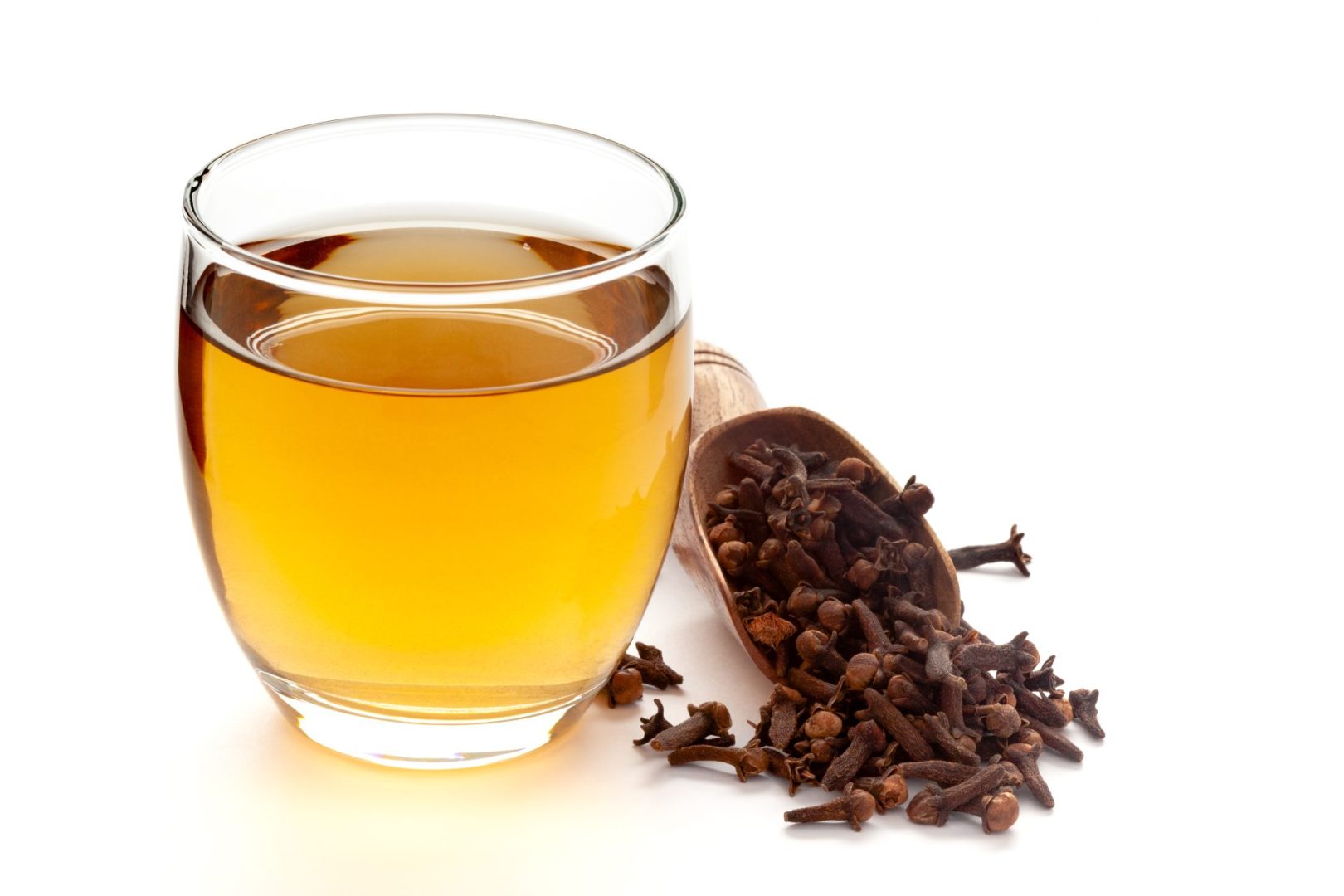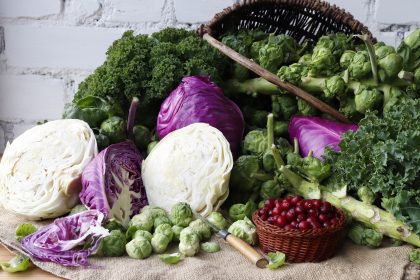For centuries, cloves have been valued across civilizations for both culinary purposes and therapeutic applications. This aromatic spice, harvested from the flower buds of the Syzygium aromaticum tree, contains some of the most concentrated beneficial compounds found in the plant kingdom. When brewed as a tea, these compounds become readily available in a form that delivers multiple health advantages with each cup.
The distinctive warm, slightly sweet flavor profile of clove tea makes it an appealing alternative to conventional beverages. Far beyond its pleasant taste, this powerful infusion provides a remarkable array of bioactive components that address numerous aspects of health simultaneously. From supporting digestion to enhancing metabolic function, the benefits extend well beyond what most people associate with this common kitchen spice.
What makes clove tea particularly valuable in modern health practices is the accessibility of its benefits. Unlike complex preparation methods required for some herbal remedies, clove tea requires minimal effort to prepare while delivering maximum therapeutic potential. This simplicity, combined with the spice’s worldwide availability, makes it an ideal addition to daily wellness routines for people seeking natural health supports.
The concentrated levels of eugenol, flavonoids, and essential oils in clove buds transfer efficiently into hot water during brewing, creating a potent beverage that works through multiple mechanisms in the body. These compounds interact synergistically, enhancing each other’s effects and creating a more comprehensive health impact than any single component could provide alone.
Modern interest in clove tea continues growing as contemporary research confirms what traditional wisdom has long suggested – that this simple spice beverage delivers substantial benefits worthy of regular consumption. From immediate sensory pleasure to long-term health support, clove tea offers a remarkable combination of attributes that merit closer examination.
Remarkable pain-relieving properties
Among clove tea’s most impressive benefits is its natural pain-relieving capacity. The primary active compound, eugenol, provides analgesic effects comparable to some conventional pain relievers but through natural mechanisms with fewer side effects. This powerful phytochemical blocks nerve signals that transmit pain sensations while simultaneously reducing the inflammatory response that often underlies discomfort.
For oral pain specifically, clove tea offers particularly notable benefits. Gargled or held in the mouth before swallowing, the brew makes direct contact with oral tissues, providing immediate relief for issues ranging from toothaches to gum sensitivity. The numbing sensation results from eugenol’s ability to temporarily block sodium channels involved in pain signal transmission, creating an effect similar to mild local anesthetics.
Beyond oral discomfort, clove tea shows effectiveness for various pain types throughout the body. Headache sufferers often report relief after drinking the warm brew, likely due to a combination of the tea’s analgesic compounds and its ability to improve circulation through vasodilation. This dual-action approach addresses both the pain signals themselves and the restricted blood flow that often contributes to headache development.
Menstrual discomfort represents another area where clove tea demonstrates significant benefit. The antispasmodic properties help relax the uterine muscles that contract painfully during menstruation, while the anti-inflammatory effects reduce the prostaglandins that intensify cramping. Women who regularly consume clove tea during their cycles frequently report less intense cramping and shorter duration of discomfort.
Joint pain also responds favorably to regular clove tea consumption. The concentrated eugenol and other anti-inflammatory compounds accumulate in joint tissues over time with regular consumption, gradually reducing both pain and swelling. Unlike many pain medications that merely mask symptoms, these compounds help address underlying inflammatory processes contributing to joint discomfort.
The versatility of clove tea as a pain management tool makes it particularly valuable in a comprehensive wellness approach. From acute issues like toothaches to chronic conditions like arthritis, this simple beverage provides meaningful relief without the potential side effects associated with many pharmaceutical pain management options.
Powerful digestive healing capabilities
Digestive complaints rank among the most common health issues worldwide, and clove tea offers remarkable benefits for gastrointestinal wellness through multiple mechanisms. The carminative properties of cloves help reduce bloating and gas by relaxing the smooth muscles of the digestive tract while stimulating the release of digestive enzymes that improve food breakdown.
For those suffering from frequent indigestion, clove tea provides particularly notable benefits when consumed after meals. The active compounds stimulate the production of gastric juices and bile, enhancing the body’s ability to process foods properly. This improved digestive efficiency reduces the likelihood of undigested food fermenting in the gut, a common source of both discomfort and potential inflammation.
The antimicrobial properties of clove tea contribute significantly to gut health by helping control potentially harmful bacteria while preserving beneficial flora. This selective activity proves especially valuable for addressing certain types of digestive distress caused by microbial imbalances. Unlike broad-spectrum antibiotics that disrupt the entire gut ecosystem, clove compounds demonstrate more targeted activity against problematic microorganisms.
For those experiencing nausea, clove tea provides gentle relief through multiple pathways. The aromatic compounds help calm the nervous system signals that trigger nausea, while the anti-inflammatory effects reduce gastric irritation that might be contributing to the discomfort. This combination makes clove tea particularly helpful during pregnancy-related morning sickness, motion sickness, or digestive upsets.
Perhaps most impressively, regular clove tea consumption appears to support the integrity of the gut lining itself. The powerful antioxidants help protect intestinal cells from oxidative damage, while anti-inflammatory compounds reduce chronic inflammation that can compromise gut barrier function. This protective effect may help prevent the increased intestinal permeability associated with numerous digestive and systemic health issues.
The warming properties of clove tea also improve circulation to digestive organs, enhancing their function and supporting optimal nutrient absorption. This increased blood flow helps deliver oxygen and nutrients to the intestinal tissues while efficiently removing waste products, creating an environment conducive to proper digestion and healing of irritated gut tissues.
Exceptional respiratory system support
The respiratory benefits of clove tea rank among its most immediate and noticeable effects. The potent expectorant properties help clear congestion by loosening mucus and making coughs more productive. This expectorant action results from specific compounds that stimulate the respiratory system to efficiently clear accumulated secretions that might otherwise harbor pathogens or restrict breathing.
Beyond simple congestion relief, clove tea provides powerful antimicrobial effects against many respiratory pathogens. The essential oils in cloves demonstrate activity against numerous bacteria and viruses that commonly affect the respiratory tract. When consumed as a warm tea, these compounds create both systemic effects through absorption and local effects as the aromatic steam is inhaled, creating a dual-action approach to respiratory infections.
The bronchodilating properties of clove compounds provide particular benefit for those with asthma or other bronchial constriction issues. These active components help relax the smooth muscles of the bronchial passages, allowing for improved airflow and easier breathing. While not a replacement for prescribed asthma medications, many people find clove tea provides complementary support when consumed regularly.
Throat irritation and inflammation respond remarkably well to clove tea, both through direct contact as the warm liquid passes through the throat and through the tea’s systemic anti-inflammatory effects. For sore throats specifically, gargling with warm clove tea before swallowing delivers concentrated beneficial compounds directly to irritated tissues, providing both immediate comfort and support for healing.
The antioxidant protection offered by clove tea proves particularly valuable for respiratory tissues constantly exposed to environmental pollutants. These potent compounds help neutralize free radicals before they can damage sensitive lung tissues, potentially reducing the long-term impact of air pollution, secondhand smoke, and other respiratory irritants.
For seasonal allergy sufferers, clove tea offers natural support by modulating the body’s histamine response. The anti-inflammatory compounds help reduce the intensity of allergic reactions by calming overactive immune responses in the respiratory system, potentially decreasing symptoms like sneezing, congestion, and itchy eyes during allergy season.
Impressive blood sugar regulation effects
The impact of clove tea on blood glucose represents one of its most valuable yet underappreciated benefits. Regular consumption helps improve insulin sensitivity, allowing the body to utilize insulin more efficiently to transport glucose from the bloodstream into cells where it’s needed. This fundamental improvement in glucose metabolism creates wide-ranging benefits for both diabetics and those seeking to prevent metabolic issues.
Multiple mechanisms contribute to clove tea’s blood sugar benefits. Certain compounds inhibit specific digestive enzymes that break down complex carbohydrates into simple sugars, effectively slowing glucose absorption from meals. This moderated absorption prevents the dramatic blood sugar spikes that contribute to insulin resistance and metabolic dysfunction over time.
For those already managing diabetes, clove tea provides valuable support alongside medical treatment. The blood sugar stabilizing effects help reduce the dramatic fluctuations that complicate diabetes management, potentially decreasing the frequency of both hyperglycemic and hypoglycemic episodes. These steadier glucose levels translate to more consistent energy and fewer complications.
Perhaps most remarkably, animal research suggests that consistent clove consumption may help regenerate pancreatic beta cells responsible for insulin production. While human studies remain preliminary, this potential regenerative capacity could prove especially significant for those in early stages of diabetes or with prediabetic conditions where preserving and enhancing beta cell function remains crucial.
The antioxidant properties of clove tea provide additional metabolic benefits by protecting blood vessels from the oxidative damage particularly common in diabetes and prediabetes. This protection helps maintain circulatory health crucial for delivering nutrients to tissues and removing waste products, potentially reducing the long-term complications associated with blood sugar dysregulation.
For those concerned about weight management, clove tea’s metabolic effects offer additional advantages. The thermogenic properties slightly increase calorie burning, while the blood sugar regulation helps reduce cravings driven by glucose fluctuations. This combination supports healthy weight maintenance, creating a virtuous cycle that further improves insulin sensitivity and metabolic function.
Exceptional oral health enhancement
The oral health benefits of clove tea extend far beyond its well-known ability to relieve toothache pain. Regular consumption or use as a mouth rinse helps reduce the bacteria responsible for plaque formation, potentially decreasing cavity development and gum disease progression. The antimicrobial compounds specifically target several strains of bacteria implicated in dental caries while being less harmful to beneficial oral flora.
The anti-inflammatory properties provide particular benefit for those with gingivitis or periodontitis. Used as a warm mouth rinse, clove tea helps reduce gum inflammation, bleeding, and recession by suppressing the inflammatory processes that damage gum tissues. Regular users often report firmer gums and reduced sensitivity within weeks of implementing clove tea as part of their oral care routine.
Perhaps most impressively, clove tea helps address halitosis (bad breath) at its source rather than merely masking odors. The antimicrobial compounds reduce the bacterial populations that produce volatile sulfur compounds responsible for most bad breath. Unlike commercial mouthwashes that temporarily cover odors, clove tea helps create lasting freshness by addressing the underlying microbial causes.
The natural astringent properties in clove tea strengthen gum tissue through mild protein coagulation, creating firmer gums less susceptible to bleeding and infection. This astringent effect also helps tighten tissues around the teeth, potentially reducing pocket formation that harbors harmful bacteria between teeth and gums.
For those suffering from oral ulcers or canker sores, clove tea provides multiple benefits. The analgesic properties reduce pain, while antimicrobial effects prevent secondary infection of these vulnerable areas. Additionally, certain compounds accelerate tissue healing, potentially shortening the duration of these uncomfortable lesions when the tea is used as a mouth rinse several times daily.
The protective effects against enamel erosion represent another significant oral health benefit. Certain compounds in cloves help maintain the mineral balance necessary for strong tooth enamel, potentially reducing sensitivity and decay risk. This protective capacity proves especially valuable given the modern dietary and lifestyle factors that increasingly challenge dental health.
Potent immune system amplification
The immune-enhancing properties of clove tea provide systemic protection against a wide range of pathogens. The exceptional concentration of antioxidants – among the highest measured in any food substance – helps neutralize free radicals that would otherwise damage immune cells and impair their function. This protection allows immune components to operate optimally when confronting potential infections.
Beyond general antioxidant protection, specific compounds in clove tea directly stimulate immune cell production and activity. These immunomodulatory effects enhance the body’s surveillance systems that identify and eliminate potentially harmful invaders before they can establish infections. Regular consumption helps maintain this elevated immune vigilance, creating ongoing protection against seasonal illnesses.
The antimicrobial properties contribute significantly to immune defense by directly inhibiting numerous pathogens, including certain bacteria, viruses, and fungi that commonly cause human illness. This multifaceted antimicrobial activity provides an added layer of protection alongside the body’s own immune mechanisms, potentially reducing both the frequency and severity of common infections.
For stress-related immune suppression – a common factor in modern life – clove tea offers particular benefits. The adaptogenic properties help moderate the body’s stress response, preventing the cortisol elevations that typically suppress immune function during prolonged stress. This stress-buffering effect helps maintain immune competence even during challenging periods that would otherwise increase infection vulnerability.
The anti-inflammatory aspects of clove tea also support proper immune function by helping regulate the inflammatory response crucial for effective pathogen elimination without excessive tissue damage. This balanced approach to inflammation allows immune processes to proceed efficiently while minimizing the collateral damage that can occur when inflammatory responses become excessive or prolonged.
Regular consumption provides cumulative immune benefits that may be particularly valuable during seasonal transitions when infection risk typically increases. The combination of direct antimicrobial activity and enhanced immune cell function creates comprehensive protection that many regular users report results in fewer respiratory infections and shorter duration of illness when infections do occur.
Impressive cognitive function support
The cognitive benefits of clove tea stem from multiple mechanisms that support brain health and function. The exceptional antioxidant content provides crucial protection for neural tissues particularly vulnerable to oxidative damage. These protective compounds help neutralize free radicals before they can harm delicate brain cells, potentially slowing age-related cognitive changes and supporting long-term brain health.
Beyond general neuroprotection, clove tea improves cerebral circulation through mild vasodilatory effects. This enhanced blood flow delivers more oxygen and nutrients to brain tissues while efficiently removing metabolic waste products that can impair optimal function. Many regular consumers report improved mental clarity, concentration, and memory recall that likely results from this enhanced circulatory efficiency.
The anti-inflammatory compounds in clove tea provide additional cognitive benefits by helping reduce neuroinflammation increasingly recognized as a factor in various cognitive challenges. By moderating inflammatory processes in neural tissues, these compounds help maintain efficient signaling between neurons and support the brain’s remarkable plastic capabilities essential for learning and adaptation.
For those experiencing mental fatigue, clove tea offers gentle stimulation without the jitteriness or subsequent crash associated with caffeine. The unique combination of compounds creates sustained mental energy through improved metabolic efficiency rather than adrenal stimulation, making it an excellent afternoon alternative to coffee for maintaining productivity without disrupting sleep.
The aromatic compounds in clove tea may directly influence brain function through interaction with neurotransmitter systems. These bioactive components appear to modulate levels of key neurotransmitters including dopamine and serotonin, potentially contributing to the improved mood and reduced anxiety many regular consumers report. This gentle neurotransmitter support may explain the sense of centered calm many experience after enjoying the brew.
Perhaps most intriguingly, preliminary research suggests certain compounds in cloves may help inhibit the aggregation of specific proteins associated with neurodegenerative processes. While human studies remain limited, this potential neuroprotective effect could make regular consumption particularly valuable for supporting cognitive function throughout the aging process.
How to prepare the perfect cup of clove tea
Creating the ideal cup of clove tea requires attention to several key factors that significantly influence both flavor profile and therapeutic potential. Starting with proper ingredient selection proves essential – whole cloves provide superior results compared to pre-ground options, as the essential oils responsible for many benefits begin diminishing shortly after grinding. For maximum potency, select plump, oily whole cloves with intact heads.
The basic preparation involves steeping 1-2 teaspoons of whole cloves in 8 ounces of hot water for 5-10 minutes. For enhanced extraction of beneficial compounds, crush or lightly grind the cloves immediately before brewing. This mechanical disruption releases more of the essential oils and bioactive components into the water during steeping.
Water temperature significantly impacts the extraction process. Bring water just to a boil (approximately 212°F/100°C) and allow it to cool for approximately 30 seconds before pouring over the cloves. This slight cooling prevents destruction of sensitive compounds while still providing sufficient heat for optimal extraction.
Covering the brewing vessel during steeping proves particularly important with clove tea due to the volatile nature of many beneficial compounds. A covered cup or teapot retains these aromatic elements that would otherwise escape, ensuring they remain available in the final brew rather than merely scenting the air.
For enhanced therapeutic effects, consider these variations based on specific health goals:
For respiratory relief: Add a slice of fresh ginger and a squeeze of lemon to amplify expectorant and antimicrobial properties.
For digestive support: Combine with fennel seeds and a small piece of cinnamon stick to enhance carminative effects and reduce bloating.
For pain management: Increase clove quantity to 2 teaspoons per cup and add a teaspoon of raw honey after brewing for enhanced analgesic effects.
For immune support: Blend with a cinnamon stick and orange peel for synergistic antimicrobial and antioxidant activity.
For oral health: Prepare at double strength and allow to cool to warm before using as a mouth rinse following regular brushing.
For cognitive benefits: Combine with a pinch of cardamom and a star anise pod for enhanced circulatory support and complementary neurotransmitter effects.
Timing considerations also influence the tea’s benefits. For metabolic support, consuming 15-20 minutes before meals helps activate digestive processes and moderate blood sugar response. For sleep support, drinking a cup approximately one hour before bedtime allows the relaxing compounds to take effect without creating urinary urgency that might disrupt sleep.
Integrating clove tea into your daily wellness routine
Incorporating clove tea into your daily regimen provides cumulative benefits that build over time. For those new to this potent brew, begin with a single cup in the morning or early afternoon, allowing your body to adjust to its potent bioactive compounds. Most people can gradually increase to 2-3 cups daily for enhanced therapeutic effects without experiencing sensitivity.
Strategic timing throughout the day maximizes specific benefits. A morning cup helps activate metabolism and provides sustained mental clarity for productivity. An afternoon serving around 2-3 PM helps prevent the typical energy slump while supporting digestion of lunch. An evening cup approximately one hour before bed can help unwind tension and prepare the body for restful sleep.
Seasonal adaptation of consumption patterns enhances clove tea’s benefits. Increasing intake during fall and winter months provides additional immune and respiratory support during peak illness seasons. The warming properties prove particularly valuable during colder weather, while the antimicrobial effects offer added protection when indoor crowding increases pathogen exposure.
For enhanced palatability, especially for those adjusting to the distinctive flavor, consider these modifications that preserve therapeutic value while creating more accessible taste profiles:
Honey and lemon: Adds sweetness and brightness that balances clove’s intensity while contributing additional antimicrobial benefits.
Vanilla addition: A drop of vanilla extract softens the spicy notes while complementing clove’s natural sweetness.
Milk or plant milk: Creating a clove tea latte with a splash of your preferred milk creates a more dessert-like experience while potentially enhancing absorption of fat-soluble compounds.
Spice blending: Combining with cinnamon, cardamom, or star anise creates more complex flavor profiles while adding complementary health benefits.
Long-term consumption strategies should include periodic adjustments to prevent potential habituation. After 3-4 weeks of regular use, consider a variation in preparation method or complementary ingredients to maintain both therapeutic efficacy and sensory interest. This rotation approach helps prevent diminishing returns while expanding the range of beneficial compounds consumed.
For those concerned about dental staining with regular consumption, simple practices minimize this potential issue. Rinsing with plain water after enjoying clove tea helps remove residual compounds that might contribute to staining. Alternatively, using a straw positioned toward the back of the mouth reduces direct contact with front teeth most visible in smiling.
The remarkable accessibility of clove tea makes it an ideal addition to virtually any wellness approach. The modest cost, widespread availability, simple preparation, and compatibility with numerous dietary preferences create a uniquely versatile therapeutic option. Whether integrated into an existing health regimen or adopted as a first step toward more conscious self-care, this ancient beverage offers contemporary benefits worthy of daily inclusion.

















